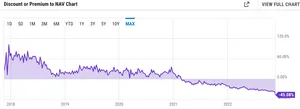On December 7, a branch of Mazars Group had published a "proof of reserves" report for Binance — though it only accounted for Bitcoin, and did not reflect liabilities for Binance's lending product. On December 9, Crypto.com also published a "proof of reserves" report that had been produced by the firm.
As of December 16, the Binance audit — which had been hosted on Mazar's website — had been deleted.
"Proof of reserves" reports have been offered by various cryptocurrency exchanges in lieu of proper audits, but have reasonably failed to reassure many customers of those exchanges. These reports do not involve the scrutiny that would be applied by a full audit — they only reflect a snapshot of assets at a point in time, and do not show a firm's liabilities.








































